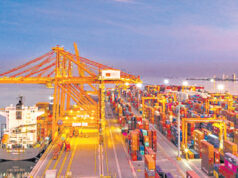Directing the current of development in Philippine energy

There are three consistent concerns in the energy industry: energy security, energy equity, and environmental sustainability. Tackling these issues has been one of the administration’s key commitments, particularly as external factors such as the Russia-Ukraine war and the COVID-19 pandemic put further strain on the country’s already beleaguered energy grid.
The Department of Energy (DoE) recently released Energy Sector Accomplishment Report 2016-2022 which highlights the government agency’s efforts in steering the country towards a sustainable, equitable energy future.
“As the government takes the gradual shift from fossil to cleaner and more sustainable energy technologies, the DoE is moving fast to meet this transformational goal. The priority is on policies and regulatory framework that will mobilize and accelerate RE (renewable energy) deployment. Conforming rules and guidelines have been established to effectively implement and enforce all RE policy mechanisms set forth under the RE law, as well as those that have been initiated by the DoE to meet the country’s goal towards energy transition,” the report wrote.
Among the milestones pursuant to this goal is the issuance of the Green Energy Auction Program (GEAP) in 2020 that created the framework for the facilitation of immediate and timely investment for new and additional RE capacities, which in turn ensures that there will be adequate supply under a competitive process. The notice for the first round of Green Energy Auction for RE has recently been published with a total RE capacity of 2,000 megawatts (MW) from hydro, biomass, solar and wind. Of the total, 1,400 MW will be auctioned in Luzon, 400 MW in the Visayas, and 200 MW in Mindanao.
Furthermore, considerable progress was reported in developing biofuels as an alternative energy source. The DoE reported 26 accredited biofuels producers actively operating with an aggregate production capacity of 1,151 million liters per year. These facilities have produced a total of 1,292.77 million liters (ML) of biodiesel and 1,741.69 ML of bioethanol from 2016 to 2021.
This is consistent with the DoE’s stance on seeking alternative fuels and technologies to use as sensible substitutes to petroleum products that will help mitigate the effects of climate change and lessen the impact of volatile international energy prices.
A landmark development was the passing of Republic Act (RA) 11697, also known as the Electric Vehicle Development Act (EVIDA), which provides an enabling environment for the development of electric vehicles including options for micromobility as an attractive and feasible mode of transport to reduce dependence on fossil fuels. The law also looks at the development of the Comprehensive Roadmap for the Electric Vehicle Industry.
Another significant policy of the previous administration is the issuance of RA No. 11285 or the Energy Efficiency Act of 2019. The policy ended the country’s almost three decades of voluntary energy efficiency market as it seeks to institutionalize EEC, enhancing the efficient use of energy, and granting incentives to EEC projects.
According to the government report, in December 2021, the country recorded a 95.41% household electrification level, with 25.02 million households now with electricity service. Among the major islands, Luzon has the highest household electrification level at 98.7%, with Visayas following closely at 96.8%, and Mindanao at almost 86.0%.
From 2016 to the first half of 2022, the country’s grid installed generating capacity expanded by 25.5% (5,459 MW) from 21,423 MW to 26,882 MW, while the off-grid installed generating capacity grew by 56.6 % (230 MW) from 406 MW to 636 MW, respectively.
In 2021, grid installed capacity rose by 4.8 %, up by 1,219 MW from the previous year’s total of 25,663 MW, whereas the off-grid installed capacity grew by 2.1 %, up by 13 MW from the previous year’s total of 623 MW. These improvements include the existing grid and off-grid facilities including power plants that went back online from rehabilitation and/or refurbishment.
The report tallied a total of 77 power projects becoming completely operational for the period of January 2017 to December 2021, bringing 4,990.2 MW of installed capacity and 4,396.3 MW of dependable capacity to the grid. These newly commissioned power plants comprise 47 renewable-based projects, 29 facilities using fossil fuels and one project of 10 MW Battery Energy Storage System.
Meanwhile, a total of 35 power projects became operational bringing 151.2 MW of installed capacity and 130.8 MW of dependable capacity to the off-grid. These power plants comprised of six renewable-based projects, 28 facilities using fossil fuels and one project of 1.04 MW Battery Energy Storage System.
“Throughout my term, we consistently pursued bold initiatives that maximized consumer gains both from the government’s energy policies, as well as the undertakings of the entire energy industry. Our country is in urgent need of more energy. In the pre-pandemic era, it was already imperative for the Philippines to be energy secure, have the capacity to provide nationwide access to reliable and affordable energy services, and move towards building a more sustainable energy system for future generations,” former Energy secretary Alfonso G. Cusi wrote in the report.
“We tried to do as much as we could in the limited time we had. And amid the emergence of contentious matters, we stood our ground and forged ahead. I remain deeply appreciative of the invaluable support we have received from all our stakeholders in the last six years.” — Bjorn Biel M. Beltran



